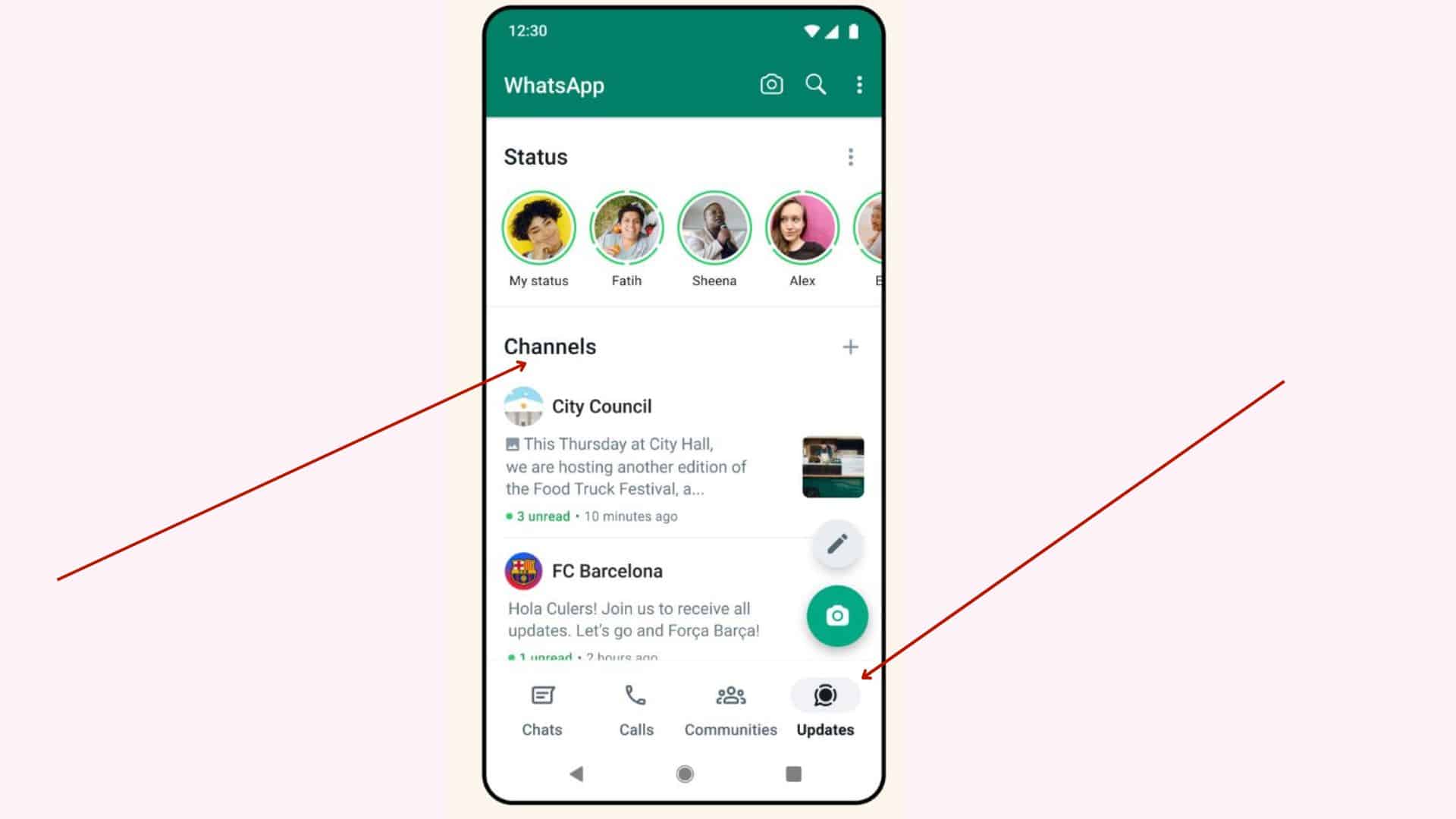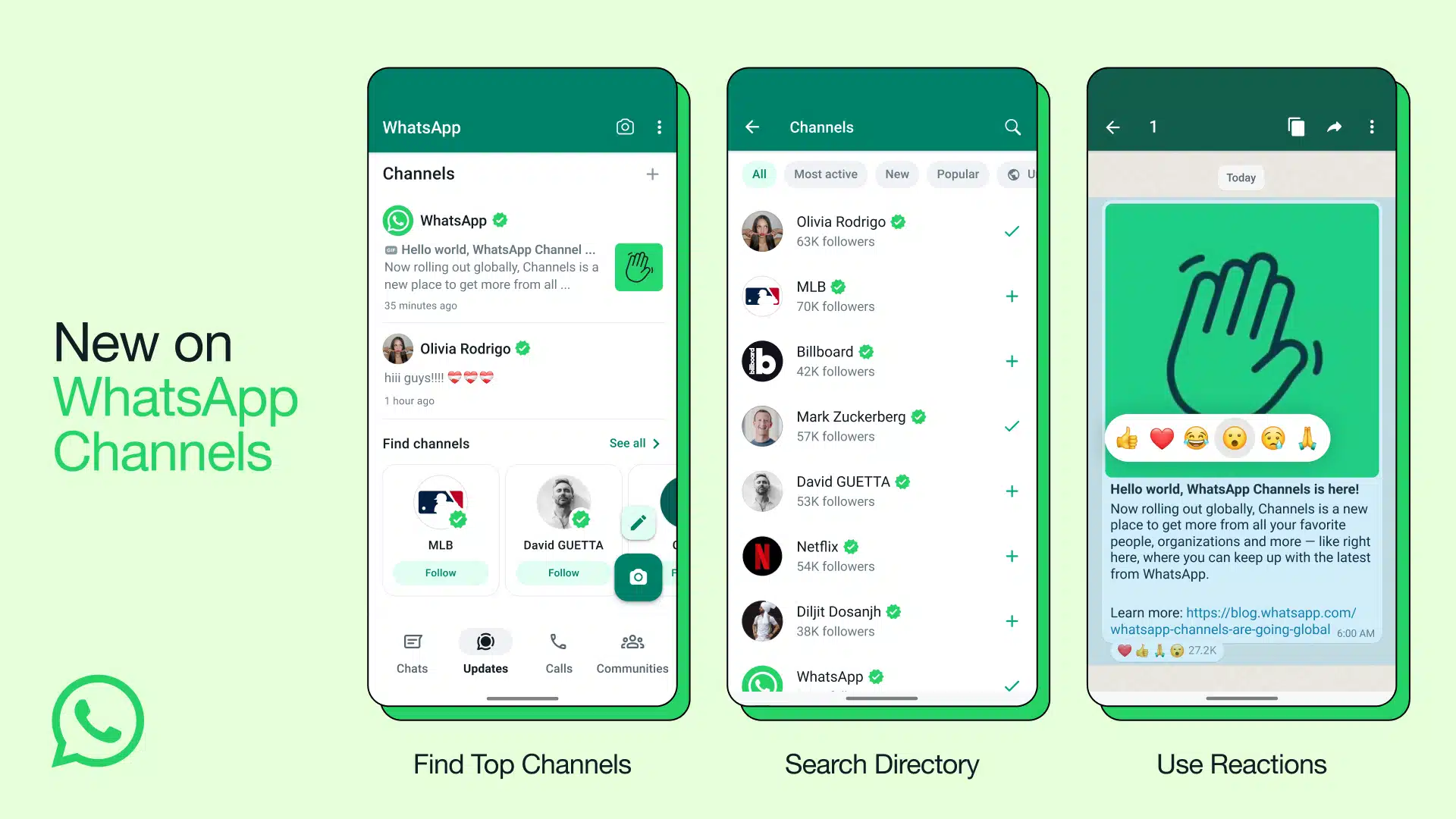WhatsApp channels are a one-way broadcasting tool that helps to send various types of content such as text messages, pictures, videos, stickers, and polls. WhatsApp is one of the most popular messaging apps used globally and businesses have started to utilize this opportunity to promote their business. It can be considered a fresh tool for digital marketing because most people consider Facebook, Instagram, Pinterest, and Twitter to promote their business. But WhatsApp is also used by millions of people and can be used to promote as much as any other social media.
How WhatsApp Channels Can Contribute to Branding and Digital Marketing:
WhatsApp channels are a one-way broadcasting tool that helps to send various types of content to Facebook such as text messages, pictures, videos, stickers, and polls. WhatsApp is one of the most popular messaging apps used globally and businesses have started to utilize this opportunity to promote their business. It can be considered a tool for digital marketing because most people consider Facebook, Instagram, Pinterest, and Twitter to promote their business. But WhatsApp is also used by millions of people and can be used to promote as much as any other social media.
How WhatsApp Channels Can Contribute to Branding and Digital Marketing:
-
- Direct Communication: WhatsApp helps businesses engage in one-on-one communication with customers. Direct personal connection between the customer and business enhances brand loyalty and customer satisfaction. WhatsApp enables businesses to clear any enquiries from customers without any interference from any third party, provide support and build stronger relationships with them.
- Brand Promotion: Through WhatsApp, businesses are able to promote their product. They convey their promotional content through images, videos, text messages and links to the company’s website and social media platforms. Brand awareness can be achieved through this kind of promotion.
- Customer Support: WhatsApp helps businesses provide customer support and queries in real-time. This assures the brand’s commitment to its customers. Customers can ask their questions in real time and communicate with them throughout the product life cycle.
- Content Sharing: WhatsApp allows businesses to share content like blog posts, articles, infographics and videos. By sharing valuable content consistently, businesses can attract the attention of potential customers and enhance customer loyalty for a long time.

- Group Chats: Group Chat facility in WhatsApp halls to create communities in group chat on the basis of products or services of the brand. These communities regulate discussions and businesses can exclusively promote the brand in these chats. Consistent reminders and updates can help maintain a loyal customer base.
- Quick Feedback: WhatsApp can be used to collect feedback through surveys conducted through messages. Businesses can use this information to understand the customer’s preferences and modify features of the product.
- Privacy and Consent: WhatsApp channels can only be promoted if the customer agrees to receive content shared by the business. The consent given by the customer is an important aspect since it clarifies that the customer is interested in the product or service. Otherwise, he/she wouldn’t have given consent. The consent of the customer is important because if the messages are sent without the permission of the customer, it can damage the reputation of the brand.
- WhatsApp Business API: WhatsApp allows more features and automation for larger enterprises. It allows people to integrate business WhatsApp into their CRM systems, manage customer interactions and send transactional messages. It is considered an important tool of branding.
Advantages of WhatsApp Channels in Branding
-
- High User Engagement: WhatsApp has a high engagement rate as people check their messages regularly. So it becomes an effective platform for reaching the target audience.
- Instant Communication: WhatsApp enables businesses to communicate instantly with potential customers regarding time-sensitive information and updates.
- Global Reach: WhatsApp has a user base beyond the boundaries, enhancing international branding effectively.
- End-to-end encryption: WhatsApp has end-to-end encryption which ensures the security and privacy of conversations, enhancing trust between business and customers.
- Integration with CRM Systems: WhatsApp can be integrated with the Customer Relationship Management System (CRM), which helps businesses manage and track customer interactions effectively.
- Cost-effective: Compared to traditional marketing, WhatsApp requires lower costs and can reach a large audience internationally.
- Analytics: WhatsApp provides analytics on the messages sent. This will help us track delivery and read the status of the messages. It can be used for the effectiveness of campaigns.
-
- Brand Loyalty: Valuable content consistently communicated can enhance brand loyalty and customer retention.
- Multimedia Capabilities: Brands have the advantage of sending different multimedia content such as images, videos, audio, documents which increases branding experience.
-
- Customer Service and Support: WhatsApp enables real-time communication so providing customer support immediately proves the brand’s commitment to its customers. It also helps to resolve issues and answer questions promptly.
- Marketing Automation: Businesses can utilize marketing automation tools to schedule messages, segment the audience and analyze performance.
- Rich Link Previews: Rich link previews help in making the messages visually appealing and informative on WhatsApp.
Disadvantages of WhatsApp Channels in Branding
There are some disadvantages to WhatsApp channels that may affect branding. So it is better to analyze them before starting branding through them.
-
- Privacy Concerns: Brands need to be careful about collecting and handling customer data. WhatsApp is highly protective of user privacy. A brand’s reputation might be damaged if the information collected is used on the whim of the brand. The personal information given by customers has to be safe and protected.
- Spam and overuse: Sending too many messages inconsistently without any limit can annoy customers. They might block you or unsubscribe from the channel if they see the messages as an annoyance. So sending valuable content consistently should be the brand’s motto to keep them interested for a long time.
- Limited Automation: There are limitations on automation which limit marketing efforts compared to other platforms.

- Lack of Advertising Options: There are limited paid advertising options compared to social media platforms like Facebook or Instagram. It is challenging to run paid ad campaigns on WhatsApp.
- Verification and Setup: The setup of a WhatsApp Business API account can be a complex and time-consuming process since it involves Aadhar card and phone number verification. It might affect some businesses.
- Cost: WhatsApp Business API can be costly. The pricing structure may not be suitable with fewer financial resources or startups with limited budgets.
-
- Audience Size: WhatsApp may not be able to reach a diverse, broader audience compared to other social media platforms.
- Message Encryption: WhatsApp has end-to-end encryption which gives security advantages, but it also acts as a disadvantage since it makes it difficult for brands to monitor and analyze customer interactions and the success of marketing efforts.
- Platform Changes: WhatsApp is a platform that has regular features and policy updates. This can affect how marketing is done. Keeping up with these updates is crucial since it affects the campaign.
- Limited Customer Data: WhatsApp provides limited data and analytics compared to other platforms, which makes it difficult to draw a blueprint of the audience’s insights.
Thus, WhatsApp channels are an effective and fresh tool of digital marketing that helps to create strong and broader customer relationships, drive engagement and sales, and promote their brand. It is a new tool that might take its place in digital marketing trends. It is also a popular form of social media which can be considered on par with Facebook and Instagram since people invest their time in this messaging platform.
Author-Manuja
Learner of DigiSkillz, Digital Marketing Institute in Kochi.




Leave A Comment